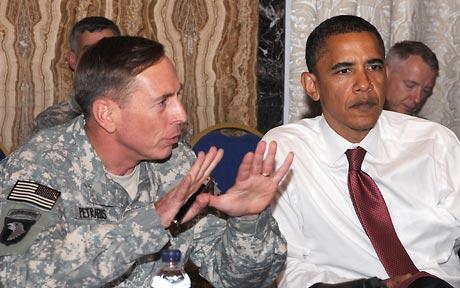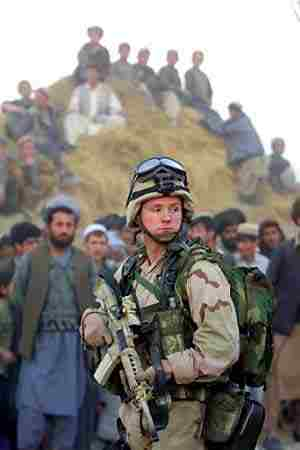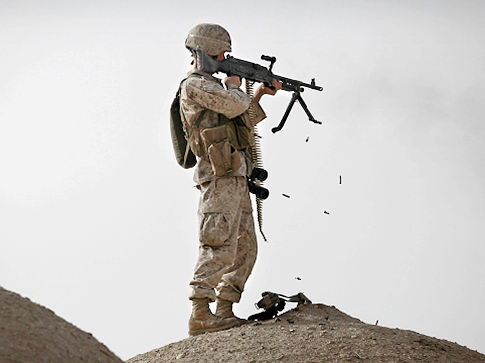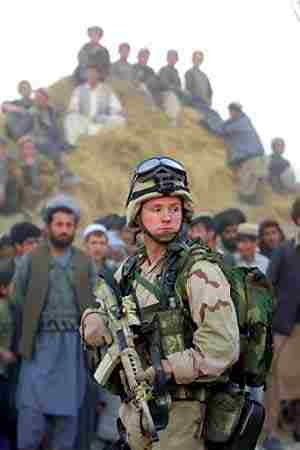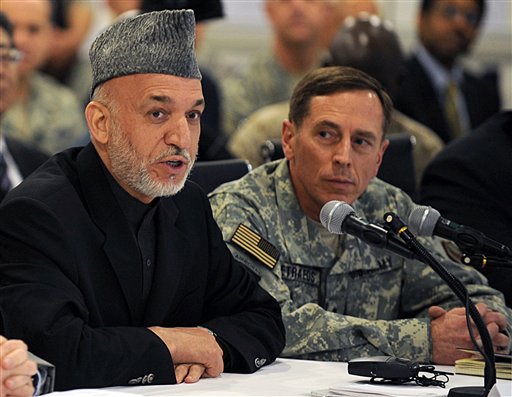US Feature: General Petraeus and the Kagans --- How "Private Analysts" Become "De Facto Military Advisors"
 Saturday, December 22, 2012 at 9:02 |
Saturday, December 22, 2012 at 9:02 |  Scott Lucas in
Scott Lucas in  EA Afghanistan-Pakistan,
EA Afghanistan-Pakistan,  EA USA,
EA USA,  US Foreign Policy,
US Foreign Policy,  US Politics
US Politics Kimberly Kagan backs increased US military forces in Afghanistan, June 2010: "We can reverse the Taliban's momentum"
Petraeus allowed his biographer-turned-paramour, Paula Broadwell, to read sensitive documents and accompany him on trips. But the entree granted the Kagans, whose think-tank work has been embraced by Republican politicians, went even further. The four-star general made the Kagans de facto senior advisers, a status that afforded them numerous private meetings in his office, priority travel across the war zone and the ability to read highly secretive transcripts of intercepted Taliban communications, according to current and former senior U.S. military and civilian officials who served in the headquarters at the time.
The Kagans used those privileges to advocate substantive changes in the U.S. war plan, including a harder-edged approach than some U.S. officers advocated in combating the Haqqani network, a Taliban faction in eastern Afghanistan, the officials said.
The pro-bono relationship, which is now being scrutinized by military lawyers, yielded valuable benefits for the general and the couple.

